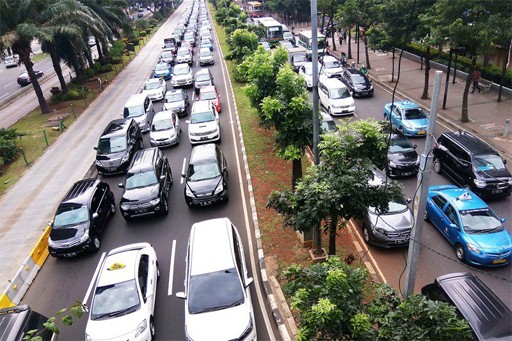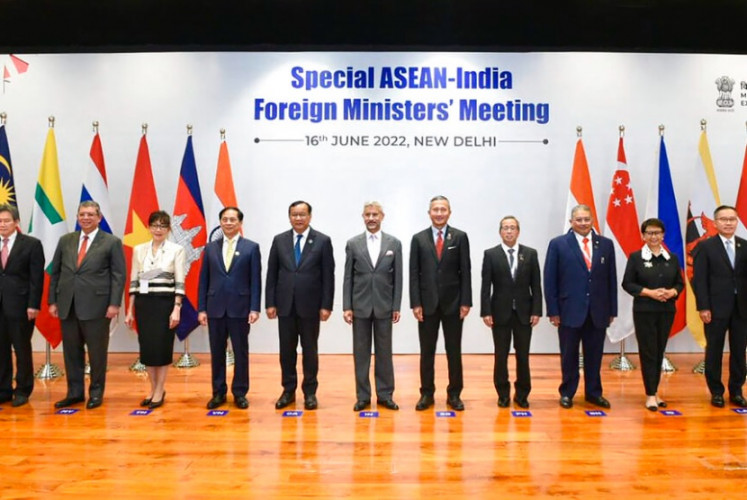Not that odd policy
Change Size
 The odd-even license plate policy is part of the effort to ease traffic congestion during the Asian Games, which Jakarta and Palembang in South Sumatra will host from Aug. 18 to Sept. 2. (JP/Jerry Adiguna)
The odd-even license plate policy is part of the effort to ease traffic congestion during the Asian Games, which Jakarta and Palembang in South Sumatra will host from Aug. 18 to Sept. 2. (JP/Jerry Adiguna)
J
akartans, be prepared for worsening traffic madness en route to your workplaces from Monday onwards as the expansion of the odd-even license plate policy will be put on trial. The test run will last until the end of July before the new regulation comes into effect on Aug. 1. More streets will be affected and for a longer period, 15 hours a day every day, according to the plan.
The bold move is part of the effort to ease traffic congestion during the Asian Games, which Jakarta and Palembang in South Sumatra will host from Aug. 18 to Sept. 2. As co-host, Jakarta must ensure travel time for athletes between venues should not exceed the standard 30 minutes set by the Olympic Council of Asia. Failure to meet the requirement will not only force the council to punish Indonesia, but worse it will cost us dearly reputation-wise, which in turn deprives us of opportunities to hold bigger sporting events.
During a test event in February, it took athletes 50 minutes to reach the Bung Karno sports complex from the athletes village in Kemayoran, both in Central Jakarta.
A more stringent traffic arrangement is therefore justified, as Jakarta is among the world’s most congested cities. Deputy Governor Sandiaga Uno estimates the travel time will be 27 minutes, based on a simulation last month. Not only quicker travel time, the expanded oddeven scheme will also result in the capital having cleaner air if half of the private cars, usually traveling across Jakarta, are parked at home.
The city’s pollution level, mostly caused by carbon emitted by motorized vehicles, reached 35 micrograms per cubic meter in January, well below the World Health Organization’s standard of 25 micrograms per cubic meter to enable athletes to perform at their best.
Similarly, other major cities that hosted the Olympic Games took extraordinary measures to make the event a success, though at the expense of their residents’ convenience.
Beijing, for example, launched the odd-even plate policy one month before the Olympics started in 2008, taking half of the Chinese capital’s 3.3 million cars off the road. The city government also discouraged people from driving their cars to watch events, by providing no parking spaces at any of the stadiums.
Tokyo, which will host the 2022 Olympics, is another congested city that Jakarta can seek advice from on the best practice of traffic engineering. Tokyo’s metropolitan government plans to reduce the volume of road traffic across the city by 15 percent during the Olympics by, among other measures, asking companies and other entities to promote telecommuting and to change work hours.
Jakarta has a lot of sources to learn from to host a successful Games. The question now is whether the sporting event will serve as a momentum for the city to ease its chaotic traffic.
It would be unfair, however, if the tough traffic restriction continues after the Games as long as transportation infrastructure is inadequate to lure people away from their private cars.








